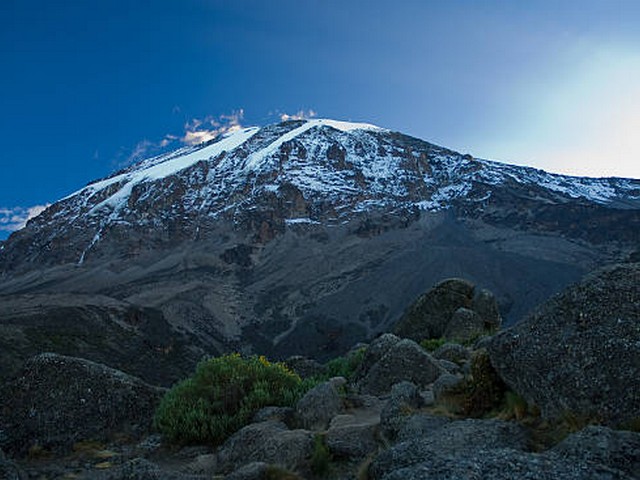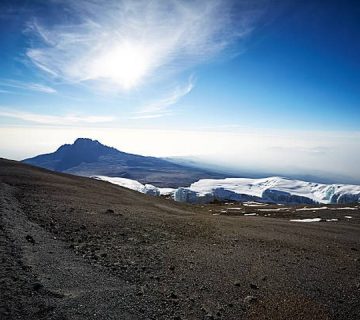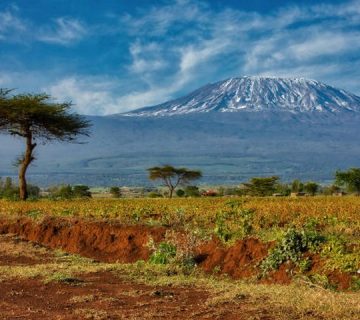Summiting Kilimanjaro: Essential Night Tips for a Successful Climb
Ascending the mighty Mount Kilimanjaro is a dream for many adventurers across the globe. Standing as the highest peak in Africa, Kilimanjaro beckons trekkers with its snow-capped summit and breathtaking vistas. However, reaching the roof of Africa, especially during the summit night, is no small feat. It requires preparation, endurance, and the right mindset. At Kilimanjaro Centre for Trekking and Ecotourism (KCTE), we’ve guided countless climbers to the summit and back, gathering invaluable insights along the way. In this blog, we’ll share essential tips to help you conquer Kilimanjaro’s summit night, making your journey not just successful but truly memorable.
Preparing for Summit Night: Gear and Mindset
Gear Up for the Extreme
Summit night on Kilimanjaro is notoriously cold, with temperatures often plummeting to below freezing. To combat the cold:
- Layer Up: Wear thermal base layers, a fleece, and a high-quality insulated jacket.
- Protect Your Extremities: Don headwear, gloves, and thermal socks to prevent heat loss.
- Illuminate Your Path: A reliable headlamp and extra batteries are essential as you will be trekking in the dark.
Mental Preparation
The climb to Uhuru Peak is as much a mental challenge as it is physical. Prepare yourself mentally by:
- Setting Realistic Expectations: Understand the journey is tough, and reaching the summit is gradual.
- Staying Positive: Keep a positive mindset, and remember why you started.
- Visualizing Success: Picture yourself standing at the summit. This mental image can be a powerful motivator during challenging moments.
Navigating the Night: Tactical Tips for the Climb
Pace Yourself
The key to summiting Kilimanjaro is a slow and steady pace. "Pole pole" (slowly slowly) isn’t just a saying; it’s essential advice for conserving energy throughout the night.
Hydration and Nutrition
Even though you might not feel thirsty in the cold, staying hydrated is crucial:
- Drink Water Regularly: Aim for small sips frequently to prevent dehydration and altitude sickness.
- Energy Boosts: Consume snacks like nuts, chocolate, and energy bars. They can be vital for maintaining energy levels.
Breathing Techniques
At high altitudes, every breath counts. Practice deep breathing to maximize oxygen intake and combat the effects of thinner air.
Common Challenges and How to Overcome Them
Battling Altitude Sickness
Altitude sickness is a real concern during the ascent. To mitigate its effects:
- Acclimatize Properly: Spend adequate days on lower altitudes to get used to the height.
- Listen to Your Body: Recognize the symptoms of altitude sickness and communicate with your guides if you feel unwell.
Dealing with Cold and Fatigue
The intense cold and exhaustion can be demoralizing. Keep moving to generate body heat and take brief, scheduled breaks to rest without cooling down too much.
The Final Push: Reaching Uhuru Peak
Reaching the summit is an indescribable feeling, a mix of exhilaration, relief, and awe. Remember to:
- Take it Slow: The last stretch can be the hardest. Keep your pace even and steady.
- Celebrate Your Achievement: Once at the summit, take time to enjoy the moment. Capture photos, reflect on your journey, and savor the sunrise over the vast African landscape.
Why Choose KCTE for Your Kilimanjaro Adventure?
At Kilimanjaro Centre for Trekking and Ecotourism (KCTE), we pride ourselves on providing not just a trek but a complete transformative experience. Our expert guides, comprehensive acclimatization programs, and focus on safety and sustainability make us the ideal partner for your Kilimanjaro adventure. Choosing KCTE means embarking on a journey with a dedicated team who values your success and overall experience as much as you do.
FAQs About Climbing Kilimanjaro
What is the best time of year to climb Kilimanjaro?
The best times are during the dry seasons, from late June to October and from late December to early March.
How fit do I need to be to climb Kilimanjaro?
While you don’t need to be an elite athlete, a good level of fitness is crucial. Regular cardio, strength training, and hikes can prepare your body for the demands of the climb.
Can I climb Kilimanjaro without prior climbing experience?
Yes, Kilimanjaro is a trekking mountain, and no technical climbing skills are required. However, prior hiking or high-altitude experience can be beneficial.
How do I prevent altitude sickness?
Acclimatize adequately, keep hydrated, eat well, ascend slowly, and consult with your guide if you feel the symptoms.
Ready to Conquer Kilimanjaro?
Summiting Kilimanjaro during the night is an adventure of a lifetime. With the right preparation, mindset, and guidance from Kilimanjaro Centre for Trekking and Ecotourism (KCTE), you can reach the peak and experience the joy of standing on the roof of Africa. Are you ready to turn your dream into a reality? Contact us today to book your Kilimanjaro climb and embark on an unforgettable journey with KCTE, where your adventure dreams come true.




